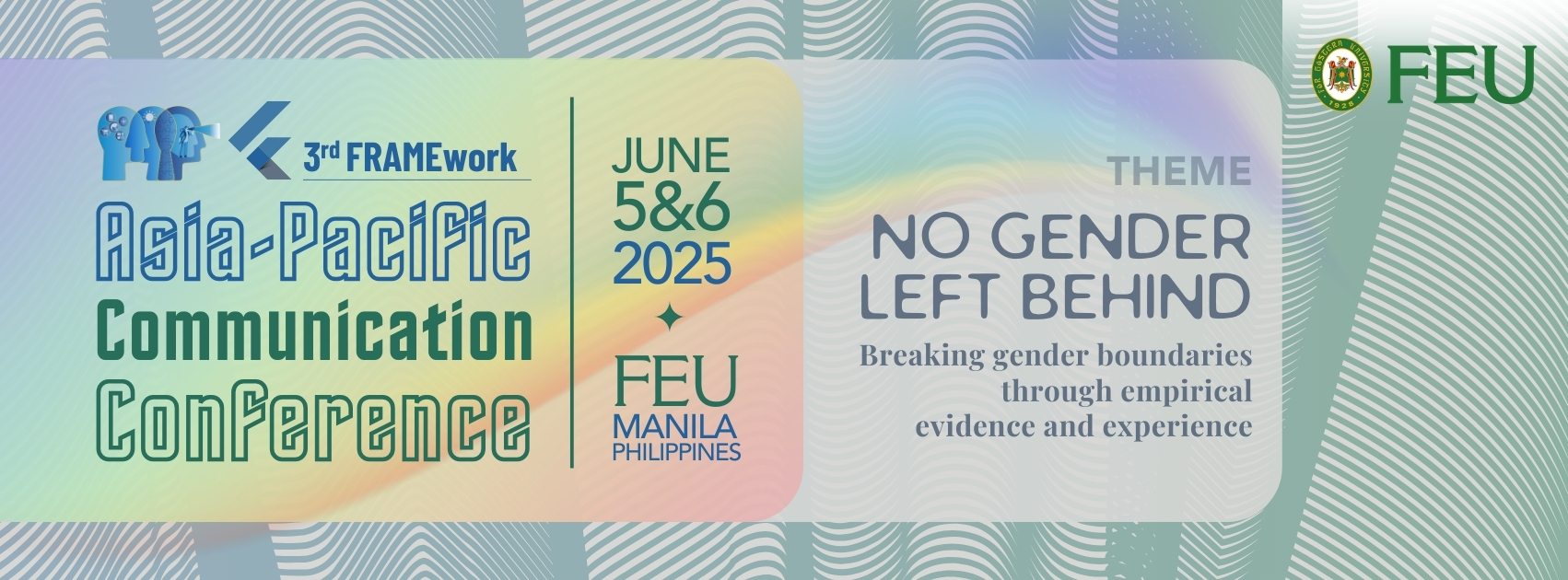CALL FOR ABSTRACTS
No Gender Left Behind: Breaking Gender Boundaries Through Empirical Evidence and Experience
SUB-THEMES
- Challenging traditional male roles
- Crisis management of men and women
- Emerging leadership strategies
- Soft masculinity
- Queer representations and discourses
- Marginalization of women in film and media
- Gender and public opinion
- Evolving gender roles in entrepreneurship
- Gendering rhetoric
- Romantic and platonic relationships
- E-sports and women and queer engagement
- Gendered work in professional and informal spaces
- Family dynamics and communication interventions
- Gendered use of mobile technology
Submit your 250-word abstract in MS Word format to: framework@feu.edu.ph
Deadline is on: April 30, 2025
As the United Nations envisions a world that knows no gender, scholars of gender and communication create discursive spaces to help achieve such vision. In such levels of communication as interpersonal, organizational, public, mass, and cultural, the inextricable link between gender and communication have been explored, interrogated, and many times, debated on. These gender discourses are made more robust in Asia as it is home to varied and rich societal norms, cultural expectations, power dynamics, and religious practices, which yield conflicting research findings.
However, at the heart of these divergent inputs lies communication that breaks gender boundaries and traditional notions about gender.
The global village and the proliferation of new media technology have opened conversations about the varying communication styles and practices between genders. Studies have shown, for instance, that while men and women differ in terms of their leadership styles, both create desired organizational outcomes by taking different routes, or that women are comfortable initiating a romantic date with their male counterpart. There is an increasing interest in queer representations on media, the unwavering popularity of Hallyu wave that introduces soft masculinity — a departure from toxic masculinity, and women taking on traditionally male roles and vice-versa.
But despite the advances in people’s worldview, gender biases and discrimination are still prevalent causing marginalization and muting their voices. Communication scholarship can help address these gaps and create a nuanced understanding of gender through the lens of the robust cultures in Asia.



